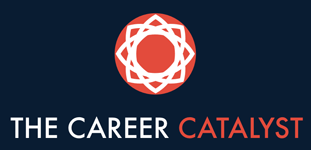
Well, here we are in late May of 2021.
The economy is showing signs of recovery but things are still tough. But, as always, I like to focus on what we can change instead of what we can’t, and the good news is that we talked about resumes last week, so yours should be in good shape now.
So let’s get prepped for interviews!
This can be an anxiety-provoking step, so read on for some basic tips to help you feel a little more comfortable with the process.
The first thing to understand about your interview is its format. Is it a virtual interview? Is it in person? How many people will be involved? Approximately how long will the interview be? You can ask these questions when you are invited to the interview or after the fact. (If you forget to ask and need to find out later on, call HR to get that info.) To me, the strangest format of all is the online interview (different from the Zoom interview), which involves you being sent a link and when you click on it, a recorded interviewer asks you questions, you get a certain amount of prep time, and then your answer is recorded. Whatever the format of your interview is, knowing about it beforehand will help you feel more prepared and confident, as well as giving you notice if there is anything you need to download first.
Pro tip: if your interview will be virtual, you can make note of things you want to say and put each reminder on a sticky note on your monitor. Easy to find, and you won’t have to look in your notebook so you can maintain more eye contact!
The second thing you need to know is as much as you can find out about the employer. You should, of course, have done some initial research when you applied, but now it’s time for deeper research. Go to their website and learn what you can about them. Look them up on Glassdoor and find out what you can. (You may also find some helpful information about what other candidates have been asked in interviews.) Google them to see if they’ve been in the news. Gathering this kind of information allows you to prepare that much better for the interview. You can determine what they value, what their struggles are, and even a little about the company culture.
Be sure to make notes as you do your research. I prefer hand-writing these notes because I find that I remember things better that way than if I type them. If there is something you particularly want to remember for the interview, write it on a notepad and bring that to the interview with you. It’s an elegant touch to have your notes and business cards in a nice portfolio, though it’s not necessary, of course.
The additional bonus of having a notepad with you is that you can note the names of your interviewers, and anything noteworthy about them. Then, when you write your thank-you notes afterwards (also: always write thank-you notes after an interview!), you can mention things that personalize it. Tell Betty that you enjoyed talking about your mutual love of fishing and ask Steve if he enjoyed his grandson’s birthday party. (You are free to email your thank-you notes or write out cards, whichever feels more comfortable for you.)
The final piece to prepare is you. Remind yourself of what you offer and the skills you have. Get your interview outfit ready well in advance. Connect your values with theirs. Get clear on why you want this job with this company. Your enthusiasm on this point can make a huge difference.



